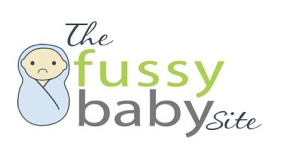- You are here:
- Home »
- Blog »
- High Need Babies »
- Jeni’s Story: Survival is the Only Option
Jeni’s Story: Survival is the Only Option
I distinctly remember standing in my friend Christina’s backyard, swaying back and forth as a three-month-old Ella slept, head slumped against my shoulder after having cried her way through the entire afternoon barbecue.
Christina, childless at the time and blind to the universe of the fussy baby, looked at me and said, “Oh good. She fell asleep. Do you want to go put her down in our bedroom?”
“Oh, I can’t put her down,” I said, already resigned to my fate. 
“She’ll wake up. I have to hold her like this while she sleeps.”
She blinked at me for a moment until she realized I wasn’t joking.
“So you hold her while she’s awake and while she’s asleep? Oh my God, Jeni. How are you not going crazy?”
And I looked her straight in the face and said, “I am going crazy.”
Later, once the fussiness subsided and I would tell people stories of my high-needs baby, they would shake their heads and say, “I don’t know how you did it.” And I would always shrug my shoulders and say, “What would not doing it look like?”
Because, believe me, there were plenty of days I wanted to “not do it,” but try as I might, I couldn’t find that option anywhere.
Having a difficult baby is not a new diet and exercise plan you can give up on. It’s not a new job you can quit because your boss is too demanding.
I remember holding my screaming newborn and thinking I’d made a huge mistake, but there was nothing I could do.
I’d made the decision to have a baby, quite willingly and happily, and there was nothing I could do to change that.
This realization came as both a blessing and a burden.
I felt trapped by it at first.
There was no escape from my new reality, but it was also a blessing.
Knowing you can’t quit something makes you that much more dedicated to making it work.
So what did “making it work” mean for me?
It meant different things on different days, but it always revolved around keeping both of us as happy as possible.
Sometimes it meant taking it easy on ourselves: walking around the block or nursing all day if that’s what we wanted to do.
Sometimes it meant forcing ourselves to get out and do normal things like go to the grocery store, or visit a friend.
Sometimes it meant taking a break from her so I could enjoy the singularity of my own body again.
I would exercise, or cook, or shower ALONE and for a little while at least I would feel like myself again.
We lived with my parents at the time and sometimes my father would simply look at me and say, “Take a walk,” as he lifted Ella from my arms.
That was another thing I did to survive. I accepted help. Anyone who wanted to help was welcome.
And I also made the decision to be completely honest about how I was feeling.
I say “decision,” but I’m not sure it was really my choice at first.
I think I was such a basket case that I wouldn’t have been able to hide it if I tried, but later, once I noticed how good it felt to tell the truth about my depression or my frustration over Ella’s fussiness, I kept doing it and anything else that helped me get through the day.
There was one friend in particular who helped me “make it work” on a regular basis, someone whose house I could simply show up at whenever I needed to, a comfortable place where both Ella and I cried almost every day.
This friend I am forever indebted to. This friend told me that after she had her son she kept telling herself that it would all be okay once things went “back to normal.”
She’d been telling herself this for weeks before it suddenly occurred to her that things would never go back to normal, that this was her new normal.
Realizing this felt like a punch in the face, but having that kind of moment is also a breakthrough.
It forces you to accept the here and now and figure out how you are going to survive it.
Because it’s not a question of whether or not you’ll survive. You will. I promise.
The question is, what will make those difficult months a little easier?
What are the things outside of your role as mother (or father) that make you feel good, and who are the people you can be that hysterical, grumpy, un-showered mess of a person around?
Finding those people and those things and making them a part of your fussy baby world is what makes the insufferable just a little more bearable.
 Jeni Bonaldo is a teacher, wife, and mom living in Connecticut. She spends most of her time trying to keep her daughter from drawing on her students’ essays and wishing toddlers knew about sleeping in on Sundays. She wants to be a writer when she grows up. Until then, you can find her at www.youandmeandellab.blogspot.com
Jeni Bonaldo is a teacher, wife, and mom living in Connecticut. She spends most of her time trying to keep her daughter from drawing on her students’ essays and wishing toddlers knew about sleeping in on Sundays. She wants to be a writer when she grows up. Until then, you can find her at www.youandmeandellab.blogspot.com
Free image courtesy of FreeDigitalPhotos.net.
Other Posts You May Like
Jeni’s Story: Survival is the Only Option
50+ Best Toys & Products for Spirited Kids, 0-5: Christmas Gift Guide
“Why are You So Tired?”: Here’s Why New Moms Are Walking Zombies
The Fussy Baby Site Goes to Facebook HQ!
How to Raise a Dragon Baby
